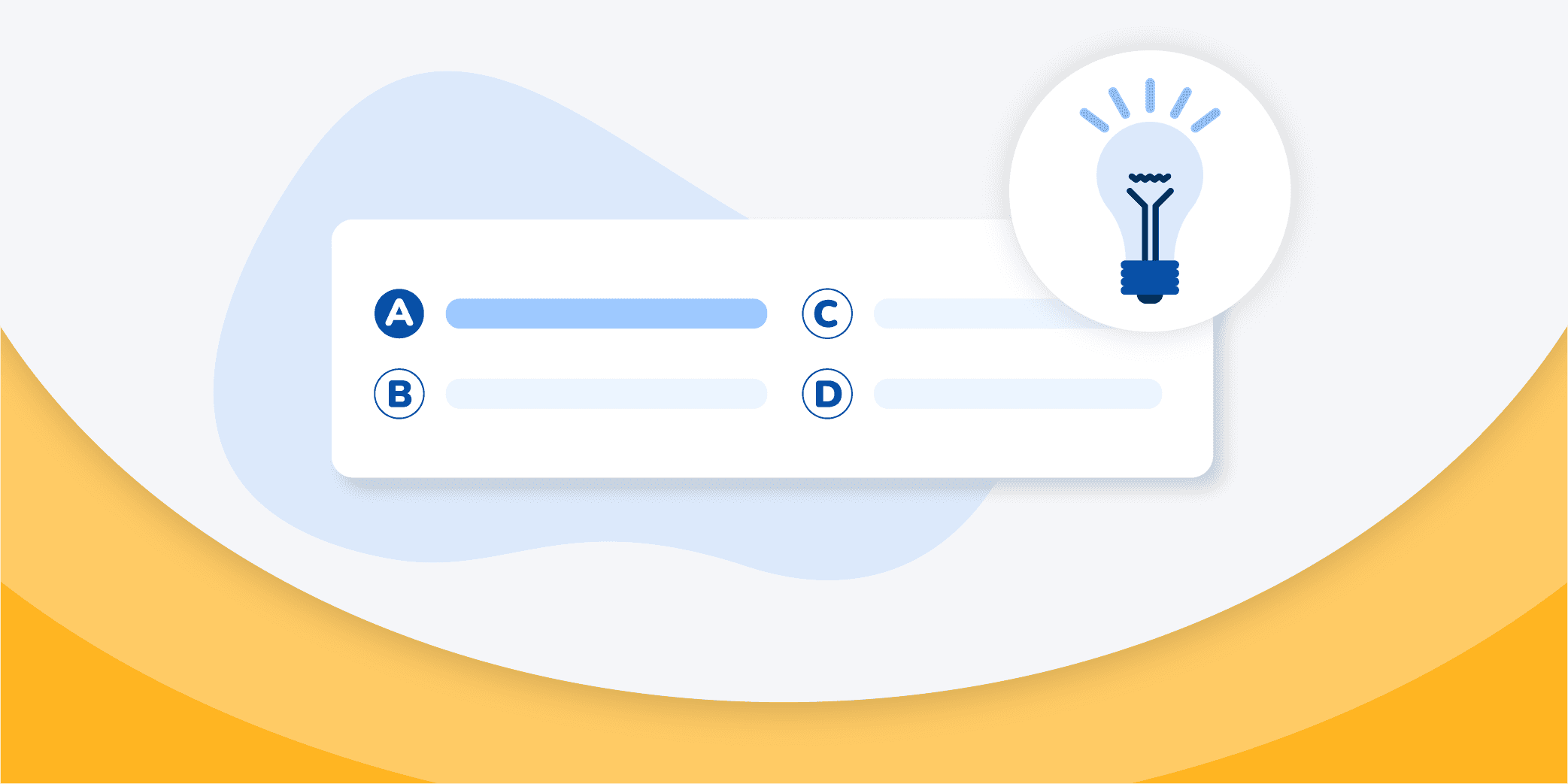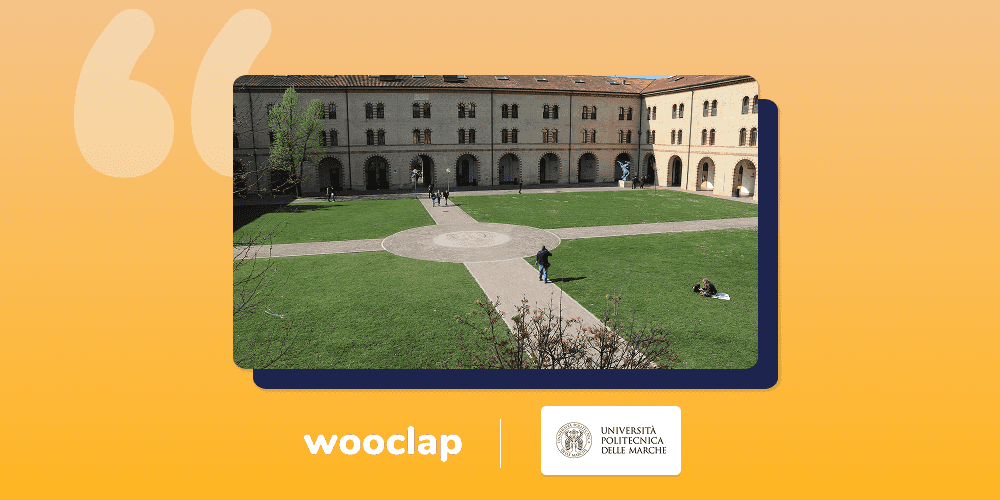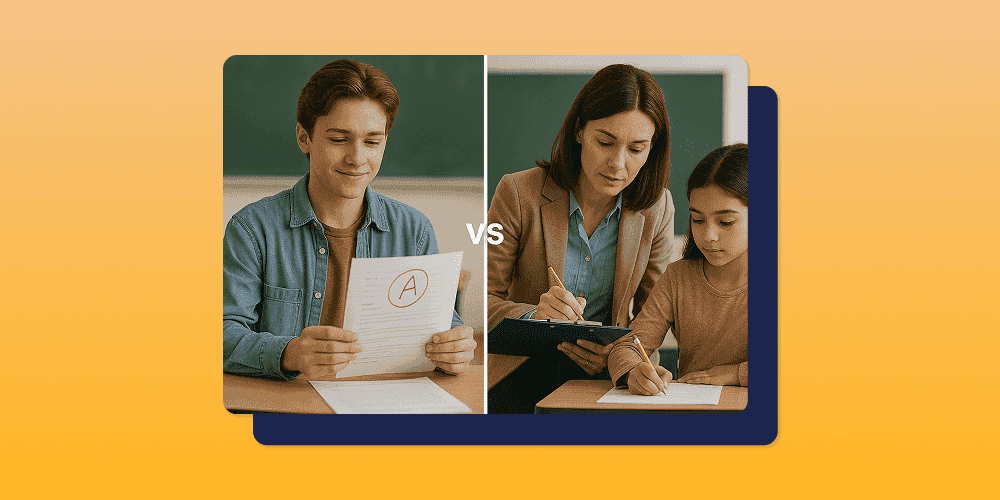
American summer tour! Wooclap will be at InstructureCon 2025
Come say hi at booth 41 from July 22nd to July 24th in Spokane, Washington
How to use the Test effect to promote long-term learning?
11.06.2019 • 4 minutes

Understanding the Test Effect: How Quizzes Reinforce Long-Term Learning
After having tried to differentiate between seedlings and weeds in "Neuromania" and having hopefully clarified the terms of the debate, we devote this article (and others) to presenting some of the findings of psychology that can actually be translated into good teaching practice.
- Quizzes are not only used to measure students’ knowledge: they also help to strengthen it.
- Students should be encouraged to undergo this exercise, which is different from a traditional “read-underline” revision. The cerebral task involved is in fact beneficial for a longer-term memorization: this is called the “test effect”.
- Students need feedback after the quiz: the closer is the correction to the mistake, the better the learning is built. Even delayed, this feedback is an additional form of exposure to the content they are learning..
Whether or not you are still a student, you are likely to recall past tests and examinations with great apprehension and little nostalgia. Yet the impact of exams is at the centre of one of the effects psychologists have known best for more than a century. Despite their reputation, exams have more than one advantage. First, they are obviously a teacher’s instrument of choice for measuring their students’ skills. Secondly, students themselves use exams to develop their self-assessment skills (what experts call “metacognition”), from which they will learn about their strengths and weaknesses to better organise revision at a later stage. But there is also a third and more surprising effect.
In his treatise On Memory and Reminiscence, Aristotle teaches us that “Mnemonic exercises aim at preserving one’s memory of something by repeatedly reminding him of it”. However, the first scientific experiments on this subject would not come until much later, with the 1909 work of psychologist Edwina Eunice Abbott. Even more recently, it was not until 2010 that the subject once again became relevant.
What have all these researchers discovered? An example of their results is shown in Fig. 1: scientists carried out an experiment on a group of students, who were asked to study a topic for the first time. Then, half of this group was given the opportunity to review this content by a simple proofreading, while the other half had to write down everything they could remember on a blank sheet of paper. The knowledge both groups of students acquired was tested repeatedly at intervals of 5 minutes, 2 days and 1 week.
What do these results tell us? Mainly, we can see that revising in the traditional way produces significantly better results than revising by means of open-ended questions, as long as students take the test soon after they have reviewed the content. After a few days, however, the opposite happens! This phenomenon is called the “test effect” and was confirmed by a recent meta-analysis covering about sixty independent studies.

Average of the proportions of concepts recalled correctly on a test after intervals of 5 minutes, 2 days, and 1 week, depending on the learning method (additional study vs. initial test). Performance decreases over time as forgetting comes into play. The error bars represent the standard error of the averages. (Roediger & Karpicke, 2006)
Beyond Assessment: The Benefits of Quizzing for Memory and Metacognition
This positive effect depends on one important condition: the teacher must provide feedback after every test to allow students to correct their mistakes. The earlier the correction, the better, though it has been shown that even a delayed correction, which would grant students more time to better structure their knowledge, has a positive effect on learning. A digital testing platform can help facilitate this process by automating feedback and providing valuable insights into each student's progress, allowing for more timely and personalized corrections. Moreover, the test’s “amplification effect” can even occur when a test is performed before a subject is studied.
We therefore encourage teachers to exploit the test effect: use quizzes in the classroom! For example, a lecture could end with an open-ended question about its main content. This will not only boost the lessons, but it will also strengthen, or even construct, the transmission of knowledge!
Writer

Florian Zenoni
Florian is a Data Scientist and editor at Wooclap.
Subject
A monthly summary of our product updates and our latest published content, directly in your inbox.



